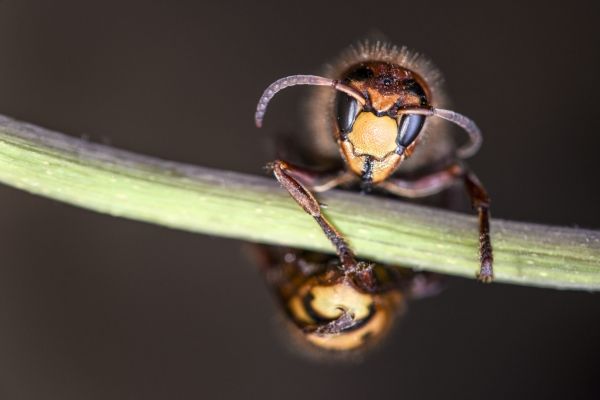At the request of Gov. Greg Abbott, a specialized task force led by Texas A&M AgriLife experts is spearheading an initiative to protect Texas citizens, agriculture and honey bees if the “murder hornet,” or Asian giant hornet, arrives in the state.
A giant invasive hornet was sighted several times in northwestern Washington state and Canada in late 2019, causing concern across the U.S. The hornet, Vespa mandarinia, preys on bees and can decimate local honey bee populations. Honey bees are essential for most fruit and vegetable crop production. Because crops rely on honey bees and other insects for pollination, in its absence, crop yields would greatly suffer. What’s more, the Asian giant hornets are fiercely protective of their nests. They deploy painful stings that can cause fatal allergic reactions in people already sensitive to bee stings.
“Although this pest has not been spotted in Texas, the hornet poses a threat to both agriculture and public health,” said Patrick J. Stover, vice chancellor of Texas A&M AgriLife, dean of the College of Agriculture and Life Sciences and director of Texas A&M AgriLife Research. “Because of this, we are bringing to bear the diverse expertise and knowledge base that exists within Texas A&M AgriLife to collaborate with federal partners and extension agents across the country to protect our state and the global food supply.”
Continue reading at Texas A&M University
Image via Texas A&M University


